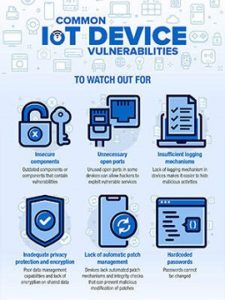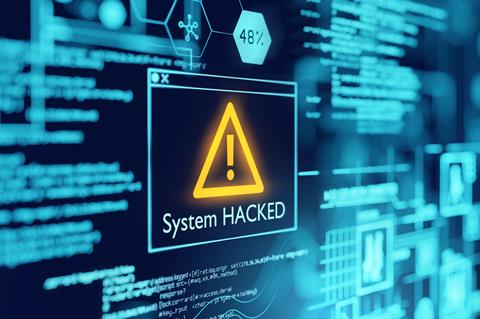Red Blog Cyber
With the rise of A.I technology and the Internet of things or IOT everything becomes linked to the Internet and therefore a risk from hackers.
From automated Self driving cars being taken over and crashing into Walls. To home security systems being hacked, Even your own fridge linked to your bank account. In this blog we discuss the rise of AI and the and the ever growing risk it causes to our security and privacy.
In the field of cyber security it’s all a cat and mouse game, The security professionals up against the hackers, Each desperately trying to find weaknesses to exploit in IT systems. Well the other trying to stop them.

One of the main ways that hackers use to acquire access to systems is by exploiting weaknesses in machines that use old or non-updated protection such as firewall and virus protection.
With the IoT more home devices are now linked to your personal or business Internet network, leaving them open to attack.
For example.
Most of us already have security set up on our main devices such as laptops home computers and mobile phones. Yet we probably didn’t think about setting the same level of security on our Alexa or satellite navigation system on the Tesla, even the smartwatch we use could be turned against us.
Just some of the well-documented cyber-attacks on smart devices that have been in the news already are home help devices such as Alexa and amazon dot listening in on conversations and potentially gaining confidential information.
Baby monitors are being hacked by anarchist groups to scare families, home security, and CCTV systems are being hacked by professional thieves to name a few.
All of this puts us all at risk. And the bigger your personal assets and job status is the hire the risk becomes.
Ransomware Prevention part 2
Picture this.
You wake up in a world not so different from now maybe exactly like it? Your smart home smart devices are everything we now rely on, you are looking forward to your holiday booked online the other week.
“Alexa, set the fridge for holiday mode,” you say thinking it would turn off and set a restock order for delivery on return.
Setting your alarm and security system you grab your passport and bag and head out to your Tesla parked in the drive.
Driving to the airport you think this is a great time to be able to relax finally have some me time and to be able to get away from your corporate job.
You have been working hard on that international trade deal and knowing that the political instability of the client has had its risks you are sure that everything will go smoothly.
Sounds like another typical day for many of us, doesn’t it?
This is a worst-case scenario showing the risk that smart devices and other AI have on our lives.
It’s been a very hard busy few months working on this project and you’re looking forward to your holiday, despite the political issues and threats against the company.
As your alarm goes off the day starts normally, setting your fridge and other smart devices for the off you grab your passport and bag secure the house, and head out.
Little to your knowledge hackers from an activist group against the trade deal your company is singing with have already compromised your network they will stop at nothing to halt the deal thinking that your company will bankrupt their economy and cut local jobs.
From the use of AI and smart devices in our homes all linked to our Internet we have greatly increased the risk of being hacked We have covered some of the ways this can happen in other blogs.
For this scenario, we will cover the shocking amount of personal data and potential risk factors such hackers could use against you.
They have access control to your Alexa due to a Bluetooth connection attack after finding your device password on your laptop. This was done when they remotely activated your home security system and viewed the CCTV knowing your every move.
Scary stuff right? Yet due to poor set up or open-source universal passwords for many smart devices and weak security settings such as firewall and virus protection that constantly require updating we are leaving ourselves open to attack.
But the risk doesn’t stop there. Hackers can access your vehicle from the satellite navigation system to its very own safety features like brakes and steering.
There are plenty of cases of Tesla and other EVs that have crashed due to system errors or possible hacker interactions.
So driving off to the airport suddenly the vehicle locks automatically and the onboard computer lights up with a shocking message
(We the United front of XYZ and we have full control over this vehicle and access to your bank account, Unless you pay us 1 million and stop the trade deal, we will crash this car and kill you.)
The vehicle picks up speed and you no longer have control.
Suddenly the phone rings and the car’s Bluetooth transfers you to your aggressor.
“This is your last chance”
“OK,” you say knowing that you are powerless against them
The vehicle slows down and you gain control.
“Pull over,” the voice says
At this point, you know that it’s too late to fight back and all that can be done is to cut the deal and pay the ransom for your life depends on it.
Again, Very scary stuff right!
Yet this is not something out of a science fiction story but actually going on now in places such as the Ukraine where Russian hackers are taking out power grids banks and other infrastructure.
Below is a list of actions that could help to reduce the risks of hackers exploiting weaknesses in your devices.
• Always update your devices regularly to ensure the latest security software is available.
• Change the password settings on new devices from the factory settings to something stronger.
• Use multi-factor identification to ensure that you will be informed of any unusual login activity.
• Restrict the privileged use of microphone and camera features on your application devices by adding password control.
• Set up password recovery with another email account and keep it secret.
• Never download or use unknown apps or Internet sites especially if they don’t have the padlock logo on the top left corner of the screen.
Always think twice and click once.
Stay safe and think about what devices you give access to.
Below are some other very interesting links to related blogs.
Hackers Of The World Unite
Lets Cast a Net on your Internet security
Let’s go phishing
10 Critical Steps to Take After a Ransomware Attack
Ransomware Prevention part 2


After reading this, its key to be aware of the risks of using such devices